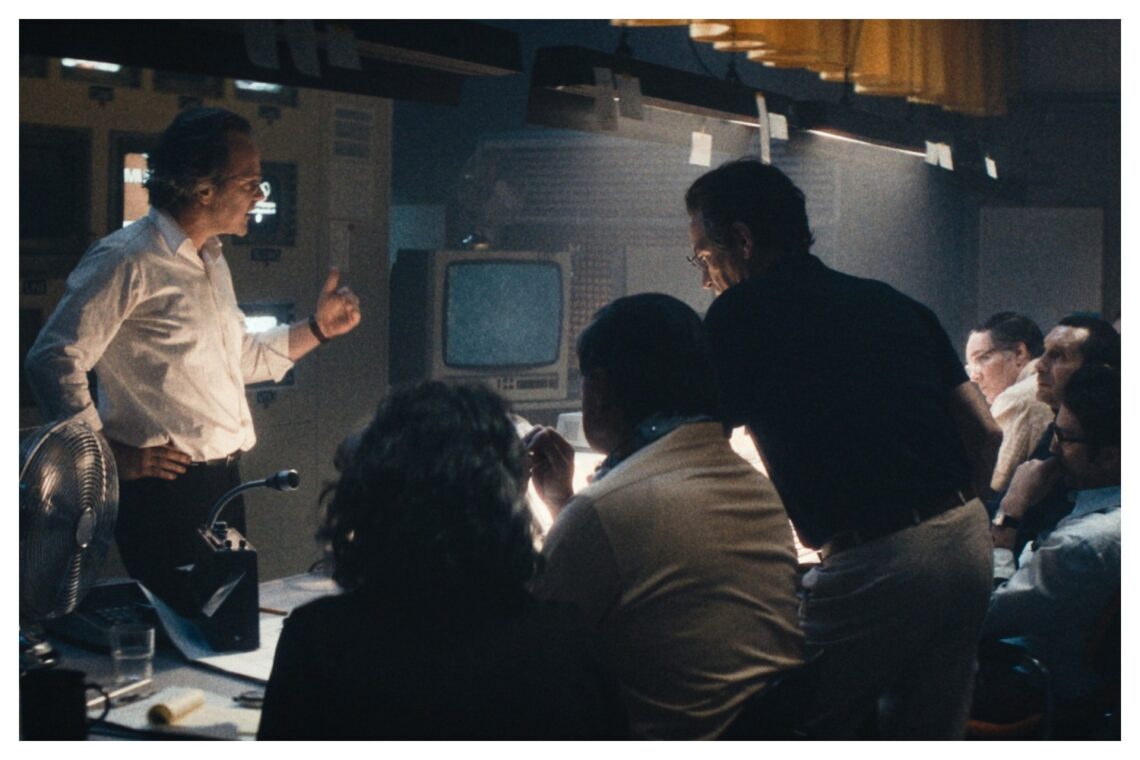September 5: A gripping tale of courage and media evolution
A star-studded cast brings history to life
In the realm of cinema, few films manage to capture the essence of a historical event with the intensity and authenticity that “September 5” promises. Directed by Tim Fehlbaum and featuring a stellar cast including Peter Sarsgaard, John Magaro, Ben Chaplin, and Leonie Benesch, this film is set to make waves at the Venice Film Festival’s Horizons Extra competition section on August 29. With Sean Penn as one of its producers, the anticipation surrounding “September 5” is palpable.
The backdrop: Munich Summer Olympics 1972
“September 5″ transports viewers back to the 1972 Munich Summer Olympics, a time when the world was united in the spirit of sportsmanship and competition. However, the event took a dark turn when Israeli athletes were taken hostage, a moment that would forever alter the landscape of live news coverage. The film delves into this harrowing incident through the eyes of an American sports broadcasting team, who found themselves thrust into the role of live news reporters.
For a sneak peek, check out the trailer.
A new perspective on a global tragedy
Through the lens of “September 5,” audiences are offered a fresh perspective on the live broadcast that was witnessed by an estimated one billion people worldwide. The film “unveils the decisive moment that forever changed media coverage and continues to impact live news today,” as stated by the filmmakers. This narrative is not just about the event itself but also about the evolution of media and the ethical dilemmas faced by those behind the camera.
The heart of the story: Geoff and Marianne
At the core of “September 5” is the character of Geoff, portrayed by Peter Sarsgaard, a young and ambitious producer eager to prove his worth to his boss, the legendary TV executive Roone Arledge. Alongside him is Marianne, a German interpreter played by Leonie Benesch, who unexpectedly finds herself in the midst of the live coverage. Their dynamic and the decisions they make under pressure form the emotional backbone of the film.
The moral quandary of live coverage
As the narrative unfolds, Geoff and Marianne grapple with the ethical implications of their coverage. With the hostages’ lives hanging in the balance, they must navigate conflicting rumors and the relentless ticking of the clock. The film poses a poignant question: How do you cover a situation like this if what the perpetrators want is the spotlight you give? This moral quandary adds depth to the story, making it not just a historical recount but a reflection on the responsibilities of the media.
Behind the scenes: A collaborative effort
The screenplay, crafted by Moritz Binder and Tim Fehlbaum, is brought to life by a team of dedicated producers including Philipp Trauer, Thomas Wöbke, Sean Penn, John Ira Palmer, and John Wildermuth. The film is produced by BerghausWöbke Filmproduktion and Penn’s Projected Picture Works, in co-production with Constantin Film and ERF Edgar Reitz Filmproduktion. Executive producers Martin Moszkowicz and Christoph Müller, along with co-producers Constanze Guttmann, Rüdiger Böss, Christian Reitz, and Geoffrey Mason, have ensured that the film stays true to its historical roots while delivering a compelling narrative.
Filming locations: Authenticity at its best
Shot on a sound stage and original locations in Munich, “September 5” strives for authenticity in its portrayal of the events. The meticulous attention to detail in recreating the atmosphere of the 1972 Olympics adds to the film’s immersive experience, making it a must-watch for history buffs and cinema enthusiasts alike.
Reflecting on the impact of ”September 5″
As we await the release of “September 5,” it is worth reflecting on the broader implications of the film. Beyond its historical significance, the movie serves as a reminder of the power and responsibility of the media. It challenges viewers to think about the ethical dimensions of live coverage and the impact it can have on real lives. In a world where news is consumed in real-time, “September 5″ offers a timely exploration of the delicate balance between reporting and sensationalism.
“September 5” is more than just a film; it is a poignant reminder of a moment in history that changed the world. As we watch Geoff and Marianne navigate the complexities of their roles, we are invited to ponder the enduring impact of their decisions and the legacy of that fateful day in Munich.

 Italian
Italian







